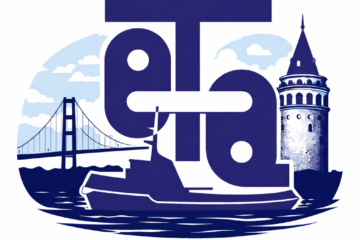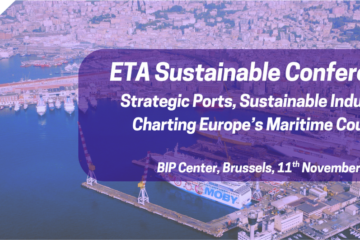Political activity resumes in Brussels after the holiday season. This year has been themed by the EU Commission as the European Maritime Year; the EC will be publishing and supporting several initiatives that will define the development of the sector for the next years. The focus on the EU maritime policy will be complemented by the Malta EU Council Presidency, which during the current semester is going to include maritime and the shipping sector among its policy priorities.
Much of the EU legislative work is a consequence of the EU Commission revision of the maritime legislation, as part of its REFIT initiative. In 2016 the EC opened a series of public consultations on several relevant directives such as the Port Reception Facilities Directive, and the so called Maritime Acquis (Directive on compliance with flag State requirements, Directive on port State control, etc.). Its intention is to evaluate the fitness of this legislation and revise it to minimise inefficiencies. The reform proposals should be presented during the first half of the year. Meanwhile, the EC is finishing the assessment of the Directive 2005/45/EC on the mutual recognition of seafarers’ certificates issued by the Member States and of Directive 2008/106/EC on the minimum level of training of seafarers. If this evaluation exercise resulted in identification of inefficiencies, the Commission would open a public consultation during 2017 that would be followed by a revision of the proposal. Nonetheless, the lengthy legislative process at the EU Parliament and Council implies that these legislative changes will not be approved during 2017.
What is certain is that in 2017 we will see if the EU legislators decide to include shipping emissions in a reformed EU Emissions Trading System. The ETS is the EU carbon market designed to reduce the Union´s emissions by obliging companies to buy and trade allowances for its year emissions and so far the shipping sector is excluded. The EP plenary will vote in March the possibility of adding the shipping sector to the System if the IMO failed to develop a legal framework by 2023. At the moment, there is big level of uncertainty since the Industry Committee rejected that possibility while the Environment one supported it. In the meanwhile, shipping associations and even the IMO have rejected this EU initiative because it could undermine the global negotiations and reduce the EU shipping sector competitiveness.
From a policy point of view, 2017 will see the EU Council debates on the recently published Ocean Governance Agenda and the latest EU Commission Communication on the Integrated Maritime Policy of the European Union. Besides the Maltese Presidency will drive forward a discussion on two important elements for the shipping industry, the digitalization of the sector (the European Single Window) and the implementation of the TEN T Network and the Motorways of the Sea. These debates would be complemented by specific policy initiatives during the year on the different priority areas (skills and qualifications, digitalization, safety, environmental sustainability and internationalization).
Moreover, the EU policy makers will have the opportunity to discuss with the sector stakeholders (industry representatives, academics, NGOs) the development of the EU shipping and maritime policies in several high level events which will for sure, influence the policy making process. The Maltese Presidency will organize a conference on the 28th and 29th of March in Valletta. The event will focus on increasing the sustainability and competitiveness of the EU maritime sector. This event will be complemented by the EC sponsored European Maritime Day, which this year will take place in Poole, UK on the 18-19th of May. This year’s Conference will focus on four themes: Safety & Security, People & Skills, Innovation & Growth and Sustainability & Governance.
Furthermore, ECSA together with the different EU shipping related associations based in Brussels, including ETA, are organizing the second European Shipping Week. From the 27th of February to the 3rd of March, hundreds of representatives of the shipping industry and national and European policy makers will discuss the future of the sector in different workshops and conferences organized by the Conference´ stakeholders. The second edition of this Brussels-based event will be focused on the competitiveness of the sector with a special emphasis on the digitisation and modernisation of the policy framework and the decarbonization of the shipping industry. Within the framework of the event, ETA will organize a workshop on the 27th with the collaboration of the Permanent representation of Malta will focus on the role that digital technologies play in the simplification of maritime transport and the efforts to increase ships energy efficiency. On that same day, ETA Nautical Technical Committee will meet to discuss the ways to develop new measures to improve safety in the towage sector.



0 Comments